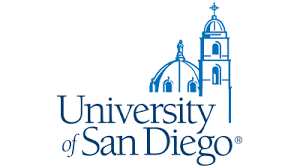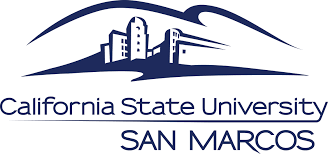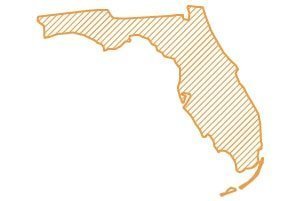California’s major universities have responded to this growing demand for skilled professionals by developing specialized postgraduate programs, to meet the present and future needs of businesses to acquire competitive advantage, reduce costs and implement sustainable supply-chain practices. California is thus a coveted destination for prospective logisticians to pursue bachelors, masters, and PhD programs specializing in supply-chain management.
Supply Chain Management Program Quick Facts — California
- Number of Supply Chain Degree Programs in California: 14
- AACSB-Accredited Supply Chain Programs: 8
- Hybrid or Online Supply Chain Programs in California: 6
- Tuition Cost Range: $19,890 – $68,128
- Average Cost of Tuition: ~$43,000
California Bachelor’s Degree Programs in Supply Chain
Bachelor’s programs in supply chain management are designed to provide foundational knowledge in logistics, procurement, and operations management. Most bachelor’s programs require approximately 120 semester units, combining general education requirements with business core courses and specialized supply chain coursework. These programs typically take 4 years to complete, though transfer students from community colleges may complete their degrees in 2 years after transferring. Below are the top three undergraduate programs in supply chain management in California.
Program:
Bachelor’s in supply chain management
Format: On-campus
Accreditation: AACSB
Curriculum Focus: Comprehensive coverage of logistics, procurement, and distribution
Notable Features: Strong industry connections for internships; proximity to Port of Long Beach provides unique learning opportunities.
San Jose State University
- 4 years
Program:
Business Administration, Operations and Supply Chain Management Concentration, BS
Format: 4-Years (check link for more details)
Graduate Output: Significant number of graduates entering Silicon Valley companies
Curriculum Focus: Technology integration in supply chains, ERP systems
Notable Features: Silicon Valley location provides excellent employment opportunities; hands-on experience with supply chain technologies.
Program:
Bachelor’s in supply chain management
Curriculum Focus: Applied knowledge for immediate workplace application
Notable Features: Career-relevant coursework based on current industry trends; Dual focus on theoretical foundation and practical skills; Broad focus on business, management, logistics, and supply chain management resulting in preparation for a wide variety of careers in the field; Integration of foundational concepts and principles with discipline specific topics.
AACSB Accredited Master’s in Supply Chain Programs in California
The Association to Advance Collegiate Schools of Business (AACSB) is a global standard-setting body for business education, strengthening the world’s business schools through accreditation, thought leadership, and transformative learning. AACSB-accredited institutions undergo comprehensive reviews of their faculty qualifications, research output, student learning outcomes, and industry engagement. As employers often prefer recruiting graduates from AACSB vetted programs, this accreditation has emerged as a hallmark of quality and thoroughness in education.
Supply chain or operations management courses are usually marginalized in business schools across the globe but AACSB accreditation of master’s programs in supply chain management have been instrumental in highlighting the importance of logistics in business education. In California, several prestigious institutions offer AACSB-accredited master’s programs in supply chain management, providing students with rigorous, industry-relevant education that prepares them for leadership roles in this critical business function.
Accredited Programs
Program:
Global Supply Chain Management
Format: On-campus
Tuition: Approximately $1,941 per unit ($68,128 per year)
Curriculum Focus: The Master of Science in Global Supply Chain Management degree requires 30 units including at least 20 units of required coursework plus up to 10 units of coursework chosen from a list of electives
Notable Features: The program focuses on topics like strategic procurement, outsourcing, logistics and distribution, the role of information technology in managing global supply chains and how these impact the process of developing new products.
University of Southern California (USC) – Online
- 2 years
- Online
Program:
Master of Science in Global Supply Chain Management
Format: online
Tuition: Approximately $1,941 per unit ($68,128 per year)
Program Length: 2 years
Curriculum Focus: 42 units covering global perspectives, extensive coursework in international business and finance
Notable Features: Integration of courses in finance and international business; access to USC’s extensive alumni network; specialized developmental psychology courses that complement supply chain knowledge.
University of California, Riverside
- Part-Time
Program:
MBA with Supply Chain Management concentration
Format: Part-time options available
Tuition: Competitive with other UC system schools
Program Structure: Core MBA curriculum with specialized supply chain electives
Notable Features: Access to A. Gary Anderson Graduate School of Management resources; connections to local industry; one-year MBA option available for qualified candidates.
University of San Diego
- Online + Part-Time + Hybrid
Program:
Master of Science in Supply Chain Management at the Knauss School of Business
Format: Part-time for working professionals, hybrid (online classes with four visits)
Tuition: $56,925 based on 2025/26 rates. Most students receive some financial aid
Program Focus: Two tracks – General and Health Care. The general track deep dives into advanced topics for general supply chains, including operations management, leadership, supply chain analytics and creating sustainable supply chains. The health care track is ideal for health care professionals who want to understand supply chain
Notable Features: Benefit from the school’s Supply Chain Institute to access internship opportunities, networking, memberships, and exclusive events.
Cal Poly Pomona
- 12-21 month
- In-Person + Hybrid
Program:
Master of Science in Digital Supply Chain Management at the Singelyn Graduate School of Business
Format: In-person lectures with hybrid content, either a full-time 12-month (three-term) or part-time 21-month (five-term) cohort-based
Tuition: For the academic year 2025/26, tuition fees per unit for full-time (6.1+ units) is $7,488, while for Part-time (0-6 units) it’s $4,344.
Accreditation: AACSB-accredited and STEM-designated
Notable Features: The M.S. in Digital Supply Chain Management offers two flexible roadmaps to complete the program. It is either a full-time 12-month (three-term) or part-time 21-month (five-term) cohort-based Master of Science program consisting of 32 credits. A GRE/GMAT is not required, however, a 4-year bachelor’s degree and demonstrated mastery of college algebra and statistics knowledge with a grade of “C” or better are required. International students will need to pass an English Proficiency Test.
Affordable Master’s in Supply Chain in California
Tuition fees vary widely across institutions, with state universities generally providing more affordable options compared to private institutions. Several California State University campuses offer competitively priced master’s programs in supply chain management:
California State University, East Bay
- 2 years
- Online + Campus
Program:
MBA with Operations & Supply Chain Management Option
Format: Classes available online and at all campuses
Tuition: Approximately $7,608 per semester for in-state students
Accreditation: AACSB
Program Length: 2 years (part-time options available)
Curriculum Focus: Integration of supply chain principles with broader business knowledge, including courses in operations management, strategic procurement, and supply chain analytics
Notable Features: Serves San Francisco Bay area with flexible options for working professionals; strong connections to local industries including tech and manufacturing.
California State University, San Marcos
- 18 months
Program:
Specialized MBA in Supply Chain Management
Format: Can be completed full-time (18 months) or part-time
Tuition: Similar to other CSU programs (approximately $7,600 per semester)
Accreditation: AACSB
Curriculum Focus: Global supply chain perspectives, business analytics applications
Notable Features: Professional Mentoring Program for students; Executive in Residence program with industry volunteers.
Other Affordable Options
Program:
Master’s in supply chain management
Format: Online, can be completed in as little as 12 months
Tuition: Approximately $442 per quarter unit ($19,890 total program)
Curriculum Focus: Application to autism spectrum and neurodevelopmental disorders
Notable Features: Accelerated timeline; fully online format ideal for working professionals.
PhD in Supply Chain and Logistics in California
California offers high-quality doctoral programs in supply chain management. These programs typically differ from standard business PhD programs through their specialized focus on advanced quantitative methods, supply chain theory, logistics modelling, and research methodologies specific to global supply networks. Several UC campuses allow PhD students to focus on supply chain research within their business or operations research doctoral programs. Most PhD programs in this field require core coursework in supply chain theory, quantitative research methods, logistics modelling, sustainable supply chain design, and global sourcing strategies. Students generally complete 60-75 credits beyond a master’s degree, with significant emphasis on original research culminating in a dissertation.
Doctoral students focusing on supply chain management typically study topics including:
- Advanced quantitative research methodologies
- Econometric modelling for supply chain optimization
- Game theory applications in supplier relationships
- Sustainable and green supply chain design
- Global logistics network optimization
- Behavioral aspects of supply chain management
- Emerging technologies in logistics (blockchain, IoT, AI applications)
Offers doctoral-level research opportunities in supply chain through their general business PhD program. Students can specialize their research in logistics and supply chain areas. Extensive research on supply chain sustainability and global logistics.
UC Berkeley’s PhD in Business Administration permits supply chain specialization while UCLA’s Anderson School offers supply chain research opportunities.
Many California professionals also pursue doctoral studies through online programs offered by institutions like the University of Maryland University College (Doctor of Management in Supply Chain and Logistics); Capella University (DBA with Supply Chain Management concentration), or Colorado Technical University (DBA with Supply Chain Logistics concentration). For those willing to relocate temporarily, prestigious institutions like Arizona State University and MIT offer highly regarded PhD programs with supply chain specializations, and both maintain relationships with California industries.
Associate Degrees and Certificates in Community Colleges
Several community colleges offer associate degrees and certificates in Supply Chain Management. These programs typically allow transfers to four-year institutions to complete bachelor’s degrees. Mt. San Antonio College is noted for its supply chain programs. Many community colleges have articulation agreements with CSU campuses for seamless transfers. Programs typically require 60 semester units and provide foundations in business and logistics.
Application Tips and Financial Guidance for California Students
Most supply chain management programs in California require:
Bachelor’s programs: High school diploma or equivalent, minimum GPA requirements (typically 2.5-3.0), and sometimes prerequisite courses in business fundamentals
Master’s programs: Bachelor’s degree (sometimes specifically in business), minimum GPA (typically 3.0+), GRE/GMAT scores (though many programs now waive this requirement), and often 1-3 years of relevant work experience
PhD programs: Master’s degree, high GPA (3.5+), research proposal, and substantial work experience
For international students, additional requirements typically include English proficiency tests (TOEFL or IELTS) and transcript evaluations. Many programs also require letters of recommendation, personal statements, and interviews as part of the selection process.
The application timeline varies by program, but most bachelor’s programs have application deadlines in November or December for fall admission. Master’s programs may have multiple application rounds throughout the year, with priority deadlines typically in January or February.
Financial Support
California’s investment in higher education makes its public universities particularly affordable for in-state students, and many programs offer substantial financial aid packages that can significantly reduce the sticker price of education. In-state students have access to various financial support mechanisms:
- California State University Grants specifically for in-state students
- Cal Grants for California residents pursuing bachelor’s programs
- Middle Class Scholarship Program for families with incomes up to $191,000
- Industry-specific scholarships through organizations like Association for Supply Chain Management or ASCM (who also offer online certificate programs on supply chain management) and the Council of Supply Chain Management Professionals
- Federal financial aid through Free Application for Federal Student Aid (FAFSA) applications
Many supply chain management programs in California also offer work-study opportunities, graduate assistantships, and partnerships with industry representatives that may provide tuition assistance or employer reimbursement programs.
For those seeking financial assistance, it is recommended that they:
- Complete the FAFSA by the March 2nd priority deadline for California aid
- Research and apply for program-specific scholarships (many have separate applications)
- Consider part-time study options that allow continued employment
- Explore employer tuition assistance programs, particularly common in larger companies
- Investigate professional organization scholarships through groups like Council of Supply Chain Management Professionals (CSCMP), ASCM, and Institute for Supply Management (ISM)

















